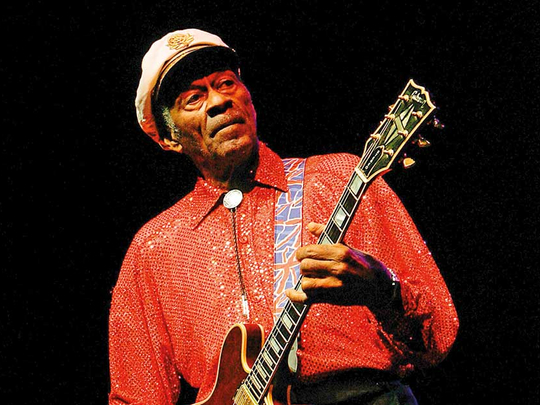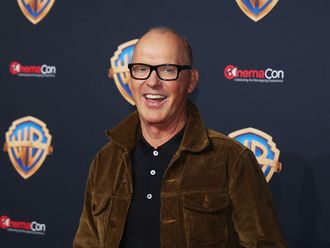
When Chuck Berry died last weekend the obituaries spoke as one — he was an extraordinary talent who had lived an extraordinary life — and everyone from Barack Obama to Mick Jagger rushed to tweet their unqualified admiration. Yet one detail was notably muted in the many articles about him: that he was a multiple sex offender.
In 1959 Berry was arrested for taking a 14-year-old girl, Janice Escalanti, across state lines for “immoral purposes”, a crime for which he eventually served two years in prison. But that was almost 60 years ago, some might say: different time, different morals! Well, kinda.
That he was then accused of installing a video camera in the ladies’ toilet of his Missouri restaurant is less easy to jazz hands away, given that it happened in the not wildly distant year of 1989. After tapes from this camera were found in Berry’s home, he was given a suspended sentence and settled a class action with 59 women.
I am not someone who thinks an artist’s personal flaws — for want of a better phrase — damn their professional output. My eyes roll hard when I hear someone say they “just can’t watch Woody Allen movies any more”, because I believe it is perfectly possible to separate the artist and the art. But I am always intrigued about which artists get a free pass about this stuff, and who doesn’t.
Woody Allen is now 81, and when he dies his various sex scandals — leaving his partner for her adopted daughter, being accused by another daughter of sexually molesting her — will be mentioned, if not in the first line, then certainly in the first paragraph of his obituaries. Allen was never charged, let alone jailed, and has always denied the allegations; but it is impossible to imagine politicians tweeting such unhesitant praise when he goes.
Similarly, Roman Polanski ‘s entire life has been shaped by his decision in 1977 to sexually assault 13-year-old Samantha Gailey; this, too, will be acknowledged early on in the tributes.
The New York Times obituary of Berry, by contrast, didn’t mention the Escalanti case until the 23rd paragraph; the so-called “potty camera” scandal was entirely absent. Instead, the news coverage of his death leant on soothingly euphemistic terms like “legal troubles” and “colourful life”.
While everyone knows Jerry Lee Lewis married his 13-year-old cousin, no sensible soul today says people shouldn’t listen to Great Balls Of Fire — not in the way that Gary Glitter or even Michael Jackson’s music has been deemed problematic in liberal circles. Had Operation Yewtree decided to investigate every high-profile musician accused of sleeping with underage girls, including (Britain, you are not going to thank me for this) David Bowie, they would have run out of police officers by the end of day one.
Allegations that John Peel had sex with an underage girl have in no way impeded his status as one of Britain’s great late national heroes.
This is not about celebrities from the past getting away with more.
Actors Fatty Arbuckle in the 1920s and Errol Flynn in the 1940s saw their careers destroyed when they were accused — and acquitted — of rape. Rather, it’s more about what the celebrity represents, and whether the infraction contradicts that. Part of the reason Allen got such a swift and merciless kicking was that he epitomised, to both his fans and his critics, an intellectual Manhattan elitism, and shacking up with your stepdaughter doesn’t really fit.
Berry had no such pretensions. With a few exceptions, musicians get more of a free pass because of that ol’ rock’n’roll lifestyle — although it is debatable whether Berry’s habit of watching women on toilets is really living the dream. Musicians also tend to have each other’s backs, which helps: before 24-hour news and minute-by-minute social media, the easiest way for the public to gauge how bad something was would be to watch how those close to them reacted. So while O.J. Simpson remained a pariah after being acquitted of double murder, Keith Richards and Bob Dylan have always happily sung Berry’s praises.
Another crucial factor is who the victims were: Janice Escalanti was a Native American; the first woman to accuse Berry of filming her was Hosana Huck, a 48-year-old former cook at his restaurant. They were not young white women, still the only important kind of victim in the eyes of too many.
Celebrity coverage of all kinds tends to flatten people into extremes: someone is a hero, or they are a monster, which is frankly childish. It is perfectly possible to acknowledge a person’s monstrous past within a celebration of their heroic work, instead of squeamishly papering over it.
Berry might have been incapable of moderating his own extremes, but the rest of us should be better at conveying the shades of grey.













